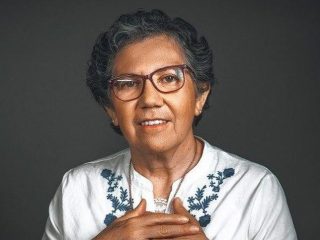There’s a crack in everything, through it light will come in.
An article by Stefanie Glinski, credit the Thomson Reuters Foundation (Visit www.trust.org) titled “South Sudan’s women deminers brave danger to change their children’s future” is running through the web sites. It tells about the 400 to 500 deminers women, digging up remnants of past and present wars – bombs, unexploded ordnances and landmines.
“Landmines have a long history in South Sudan, the world’s youngest nation that won independence from Sudan in 2011 after a long and violent liberation struggle. After just two years, a political squabble escalated into renewed civil war in late 2013, fracturing the new nation along ethnic lines,” writes Stefanie and reports the story of Margret who “decided that South Sudan is not a place to raise children, but she is changing this for future generations.” “It’s my way of contributing and making this country better,” she said. “I sent my children to Uganda, but I want them to come back one day. It’s a sacrifice for me, but a gain for those returning when the war is over.”
“More than four million mines and explosive devices have been found and destroyed in South Sudan over the last decade, says the United Nations Mine Action Service (UNMAS). While some accidents are recorded, UNMAS believes that at least 90 percent go unreported.”
These women are doing the most effective action of Advocacy. Actually advocacy can be done in many ways: policy work, research and investigation (building an evidence base on issues and problems, and so identifying recommended solutions or courses of actions), Collecting and producing documentation on a problem, creating public awareness (Increasing the knowledge and understanding of the public about the existence of a particular issue, problem or policy), campaigning, alliance building.
Their action collects evidences of a war and injustice; creates public awareness of a problem on local, national and international level. Their campaign against one of most cruelty of war: “Soldiers placing mines think carefully about how humans behave, where they go and what they do. That is why mines are found alongside roads, in market places or by water points,” write Stefanie quoting Jan Møller Hansen of DanChurchAid’s demining project. “While mines are easy to place, they are hard to remove.” These women doing so are the pivot of alliance building of all people and institution opposing wars and human mines, searching to rebuild the nation and the welfare of the people, aiming and hoping to bring about a change in policy work.
Too often, grassroots and international organizations see the advocacy arena as a space of words, discussions, conferences, decisions, agreements or disagreements, documents and papers: those women reminds the necessity of actions, capable to brave danger. Let’s say by paraphrasing an idea of Leonard Cohen, “Create a crack even in the toughest situation, through it light will come in”.
John Paul Pezzi, mccj
VIVAT International NGO,
with consultative special status at UN



